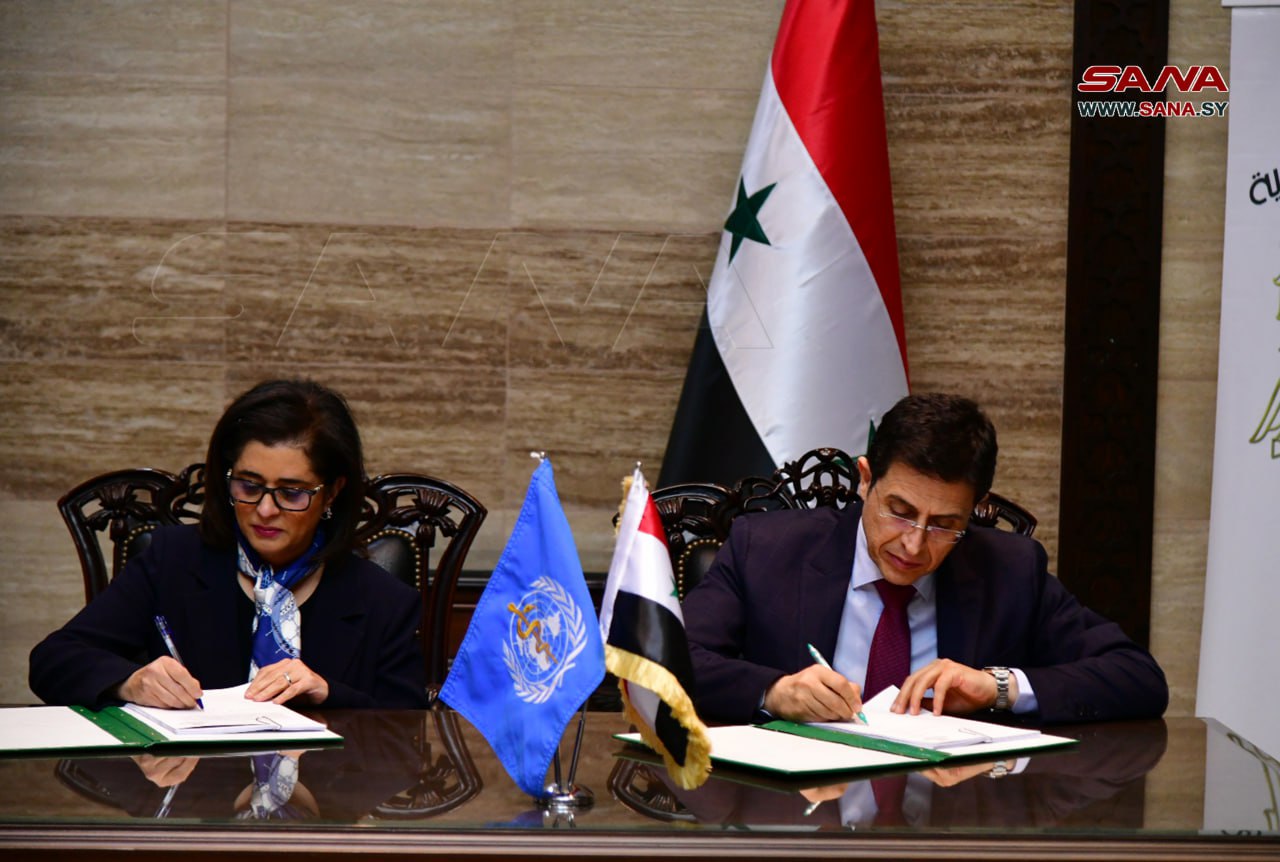Damascus (ST) – The Ministry of Health on Monday signed the Country Cooperation Strategy with the World Health Organization (WHO) until 2025 at the Ministry’s building in Damascus.
Minister of Health Hassan Al-Ghabbash, stated that signing the strategy confirms the joint commitment to working on the agreed-upon priorities, and reinforces the organization’s long history of supporting and agreeing with national development priorities.
The visit of the Regional Director of the WHO for the Eastern Mediterranean Hanan Balkhi included an overview of the health situation and determining priorities for action.
In turn, Balkhi stressed that the agreement will be renewed in the light of the global organization’s partnership with Syria, noting that old agreements and partnerships were discussed to rearrange priorities in the light of the difficult circumstances, in addition to regional and climate problems.
The signing of the agreement was attended by Assistant Minister of Health, Dr. Ahmed Damiriyah, a number of directors and stakeholders, and the representative of the World Health Organization, Dr. Iman Al-Shanqeeti.
In a related context, Balkhi and Al-Ghabbash reviewed the central warehouses of the Ministry of Health in Al-Assad Health Research Complex in the Dimas area in the Damascus countryside.
“The organization is actively seeking to develop partnership with the Ministry regarding assistance in getting medicines and medical aid to citizens”, Balkhi added.
She stressed that the tour aims to review the storage operations and the quantity of current supplies that serve all Syrian regions”, Balkhi added.
 Earlier, during a meeting with Balkhi as well as the directors at the Ministry of Health, and the directors at the WHO’s office in Damascus, Al-Ghabbash underlined the need to continue intensifying cooperation and coordination with the WHO to provide comprehensive health services to citizens.
Earlier, during a meeting with Balkhi as well as the directors at the Ministry of Health, and the directors at the WHO’s office in Damascus, Al-Ghabbash underlined the need to continue intensifying cooperation and coordination with the WHO to provide comprehensive health services to citizens.Participants in the meeting discussed ways to implement strategic goals of the ministry and aspects of cooperation with the WHO to support health programs in Syria.
They also highlighted challenges facing the work due to weak or reduced funding for many health programs and the difficulty of securing and maintaining medical equipment as a result of the sanctions imposed on Syria.
Najla Khoury

